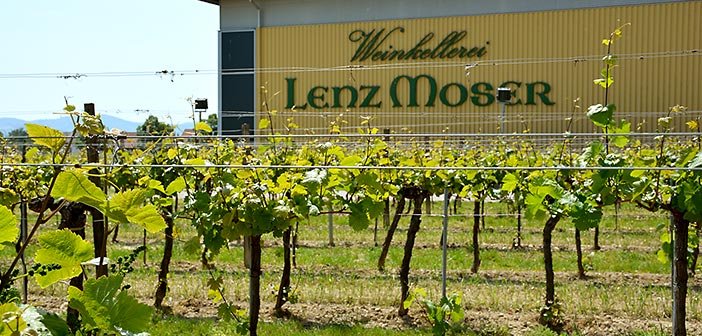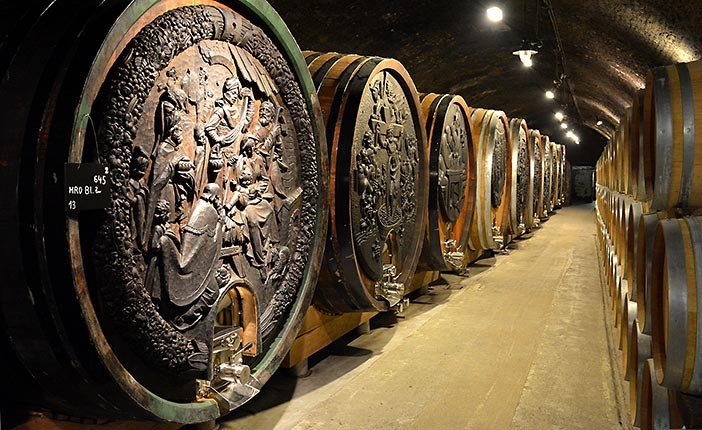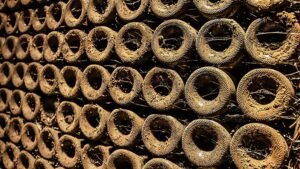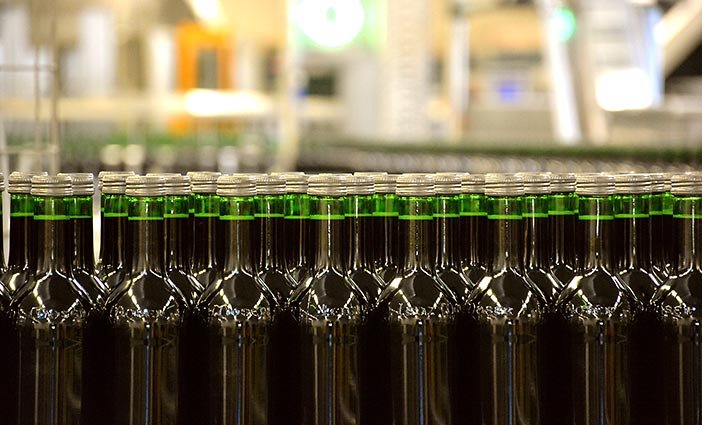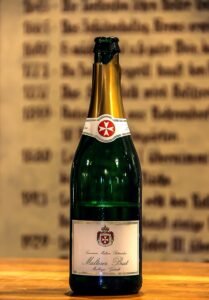Lenz Moser on sekoitus tuhat vuotta vanhaa viinintekemisen taidetta, huippuunsa vietyä modernia kehitystyötä, uusinta laitteistoa, tehokasta mutta laatua vaalivaa tuotantoa. Lopputuloksena syntyy ehkä merkittävin itävaltalainen viinitalo.
Tuhatvuotinen historia
Tuhat vuotta sitten maaomistukseen liittyvät asiat olivat mukavan yksinkertaisia. 1040 Henry III antoi määräyksen, jonka mukaan Rohrendorfin kylän ympärillä olevat viinitarhat siirretään Ebersbergin luostarin omaisuudeksi. Vähän myöhemmin tarhoja aletaan kutsua nimellä “Moser”.
Satoja vuosia mentiin, Itävallan, maailmanpolitiikan ja kirkon rajat piirreltiin uusiksi moneen otteeseen ja lopulta luostarin maat siirrettiin takaisin kansan omistukseen. 1849 Anton Moser alkoi vetämään Rohrendorfin tilaa ja kellaria. Tuo vuosiluku katsotaan Lenz Moserin syntymävuodeksi.
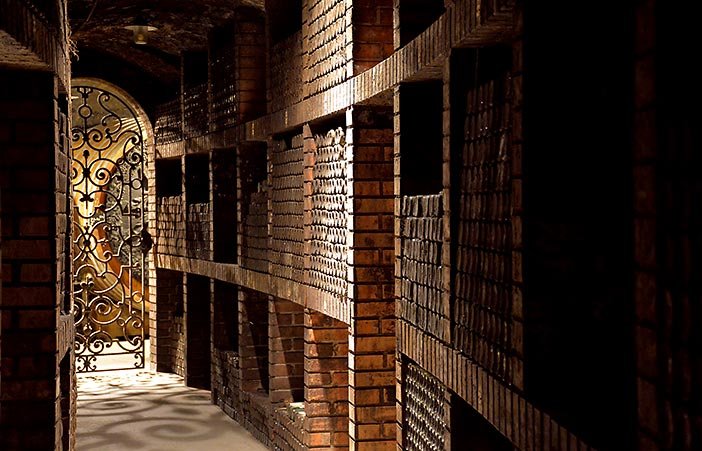
Iso tuotanto ei vättämättä tarkoita bulkkia

Tänä päivänä Lenz Moser on Itävallan merkittävimpiä ja vaikutusvaltaisimpia viinitaloja. Omien hehtaarien lisäksi se ostaa rypäleitä lähes 3000:lta viljelijältä, jotka seuraavat tarkoin Lenz Moserin menetelmiä orgaanisesta lannoituksesta ja luonnonmukaisesta tuholaistorjunnasta aina Professori Lenz Moser III:n kehittämään “high training cultureen”, jossa viinin runko kasvatetaan jopa 1,2 metrin korkeuteen. Rypäleet kehittyvät hieman tämän yläpuolelle ja niiden kerääminen käsin tai koneellisesti on erittäin nopeaa ja tehokasta.
80-luvusta lähtien Lenz Moser on investoinut kymmeniä miljoonia euroja tuotantotiloihinsa, kehitykseen ja laitteistoon niin, että jokaikisestä rypäleestä saadaan vain parasta irti mahdollisimman tehokkaasti. Lenz Moser on tänä aikana vienyt hyvin pitkälle valkoviinien kylmäkäyttömenetelmää. Punaisen Zweigelt-lajikkeen noususta maailman maineeseen voidaan kiittää Lenz Moserin sitkeää kehitystyötä.
Lenz Moserin ideologia on simppeli; tuottaa kohtuuhintaisia, mutta hyvälaatuisia viinejä. Näiden kahden ääripään välissä strapetsilla keinuttelu onkin luonut Lenz Moserin ystäväkunnan, joka luottaa brändiin, oli kyseessä 93 pistettä saanut pullote tai paikallisen viinibaarin hanasta saatava tuote. Vaikka tuotantomäärät ja valikoima ovat, varsinkin Itävallan mittakaavassa megalomaanisia, yhtään ns. bulkkiviiniä ei kellarista tule ulos.
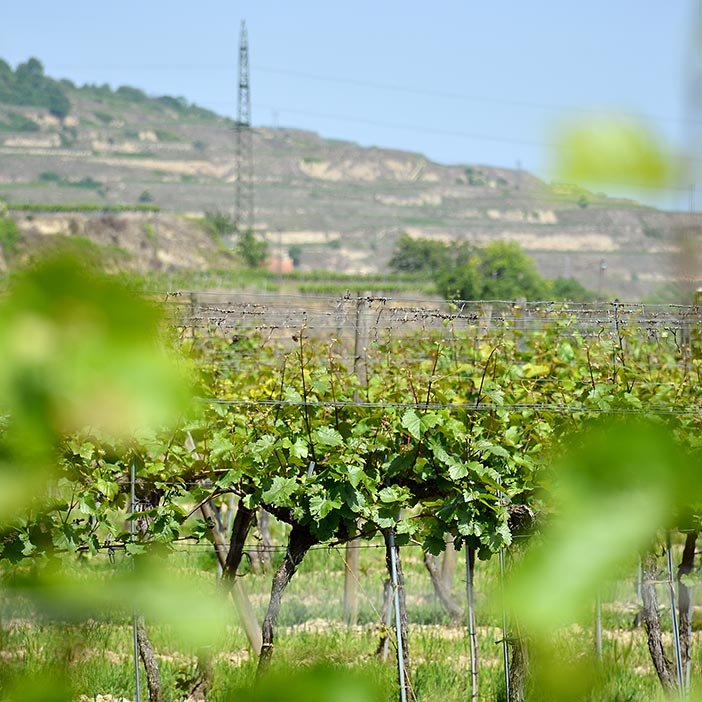
Lenz Moser lukuina
- 17 miljoonaa pulloa vuodessa
- 70 työntekijää, liikevaihto 38 miljoonaa euroa (2012)
- 50/50 punaista ja valkoista
- 30% vientiin, Saksa isoimpana ostajana
- Omia tarhoja 75 hehtaaria ja lähes 3 000 sopimusviljelijää Niederösterreichin ja Burgendlandin alueilla
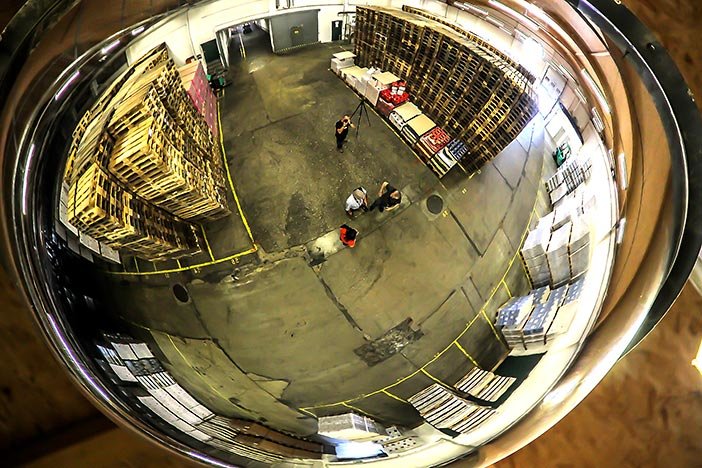
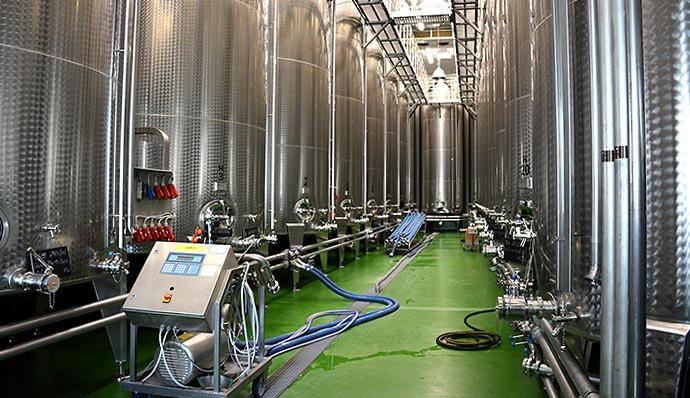
Uusi pullotuslinja on insinööritaidon mestariteos
Kun tuotanto kasvaa tarpeeksi suureksi, joutuu miettimään myös epäseksikkäitä asioita viinintekemisessä – kuten pullottaminen. Lenz Moser investoi 3,5 miljoonaa euroa uuteen pullotuslinjastoon vuonna 2013. Kapasiteetti kasvoi 12 500 pullosta tunnissa 16 000 pulloon eli vain noin neljänneksen. Voisi kysyä, että onko rahaa liikaa eikä keksi minne sitä enää laittaisi?
Pullotusvaiheeseen liittyy kuitenkin yllättävän paljon logistisia, laatuun liittyviä ja jopa markkinoinnillisia seikkoja. Ensinnäkin uusi pullotuslinja mahdollistaa uudentyylisten matalien kierrekorkkien ruuvaamisen. Uudet kierrekorkit ovat huomattavasti hygienisempiä kuin vanhat. Kierrokorkit kautta linjan ovat immuuneja “korkkivialle” eli hapelle, mutta eivät välttämättä roskalle itse korkissa.
Pullot voidaan täytää lähes täyteen, joka tietysti minimoi ilman määrän pullossa ja takaa freesimmän maun. Kaulat tarkistetaan kahden kameran avulla ja “kynttiläfiltteri” tarkistaa pullon pesun jälkeen 100% kliiniseksi kaikilta mikrobiologisilta kummajaisilta.
Ennen Lenz Moser käytti 11 eri pullotyyppiä, joten paletti saatiin niin ikään yhtenäistettyä. Uudet pullot kautta linjan ovat nyt myös huomattavasti kevyempiä, joten dieseliä ja luontoa säästyy rahdatessa niitä ympäri palloa. Kokonaisuudessaan uusi linja on myös tottakai energiatehokkaampi ja hiljaisempi, joten myös pullotuslinjantyöntekijät ovat olleet haltioissaan.
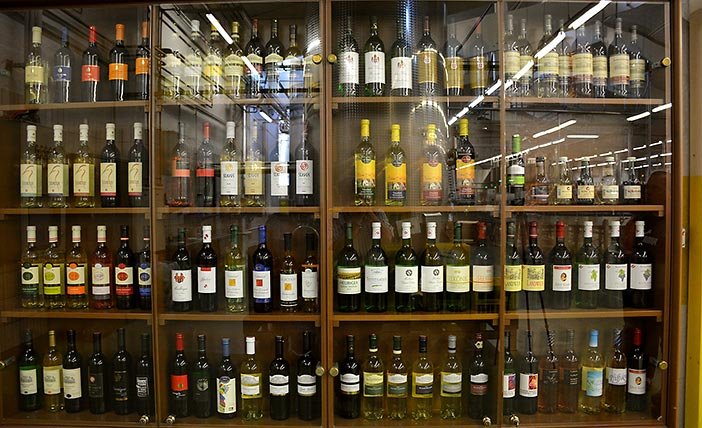
Lenz Moser viinitasting
Malteser Brut Gutssekt 2012
Hieno raikas aromi. Hiukan paahteinen. Malolaktinen käyminen. Pehmeän raikas. Hieno mousse.
Lenz Moser Prestige Grüner Veltliner 2013
Lime, hedelmä. Painava tuoksu. Maku raikkaampi, ok hapot.
Malteser Weinviertel DAC 2013
Selkeä tuoksu, yrttejä, sitruunaa. Leveän tasapainoinen. Hedelmäinen. Pitkä. Mineraalinen. Laatukamaa.
Lenz Moser Prestige Pinot Gris 2013
Hento päärynä. Hiukan yrttejä. Sitruuna. Tuore, mehukas, nuorekas ja helppo.
Lenz Moser Prestige Riesling 2013
Omena ja persikka. Kuiva, tasapainoinen, kiva ja helppo riesling.
Fête Rosé 2013
Kukkia, kirsikkaa, aprikoosia. Hieno raikkaus. Hyvät hapot. Aromikas. Mansikkaa. Erinomainen rose.
Lenz Moser Prestige Blauer Zweigelt Reserve 2011
Vähän kirsikkaa. Hento savu. Keskitäyteläinen, leveä, pyöreä tuoksu antoi odottaa enemmän.
Klosterkeller Siegendorf O’Dora 2011
Kirsikkaa, marjoja, maata. Hiukan vaniljaa. Tasapainoinen, kehittynyt ja laadukas. Hyvä tammisuus. Loistoviini.
Lenz Moser Prestige Beerenauslese 2012
Hento metsähunaja. Aprikoosia. Selkeä ja keskitäyteläinen. Ei happoja, joten makeus korostuu. Helppo.
Lenz Moser Prestige Trockenbeerenauslese 2012
Konsentroitunut. Aprikoosi. Hento happo taittaa makeutta. Tasapaino. Laatu. Erinomainen.
Teksti: Janne Suomi
Kuvat: Janne Suomi ja Sami Issakainen
www.lenzmoser.at
This post is also available in:

